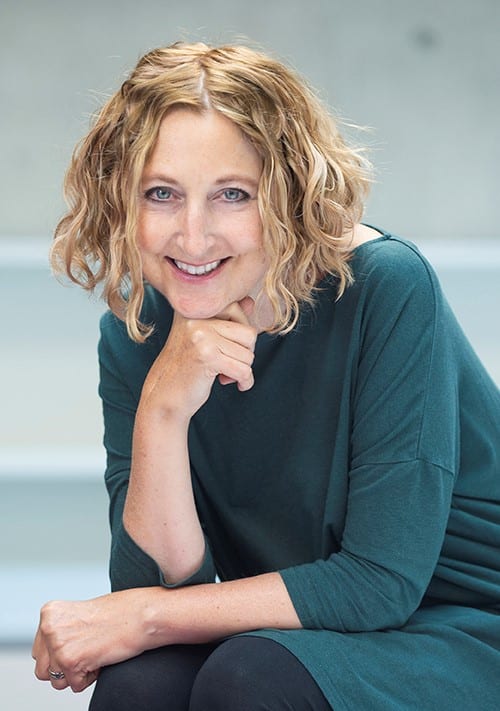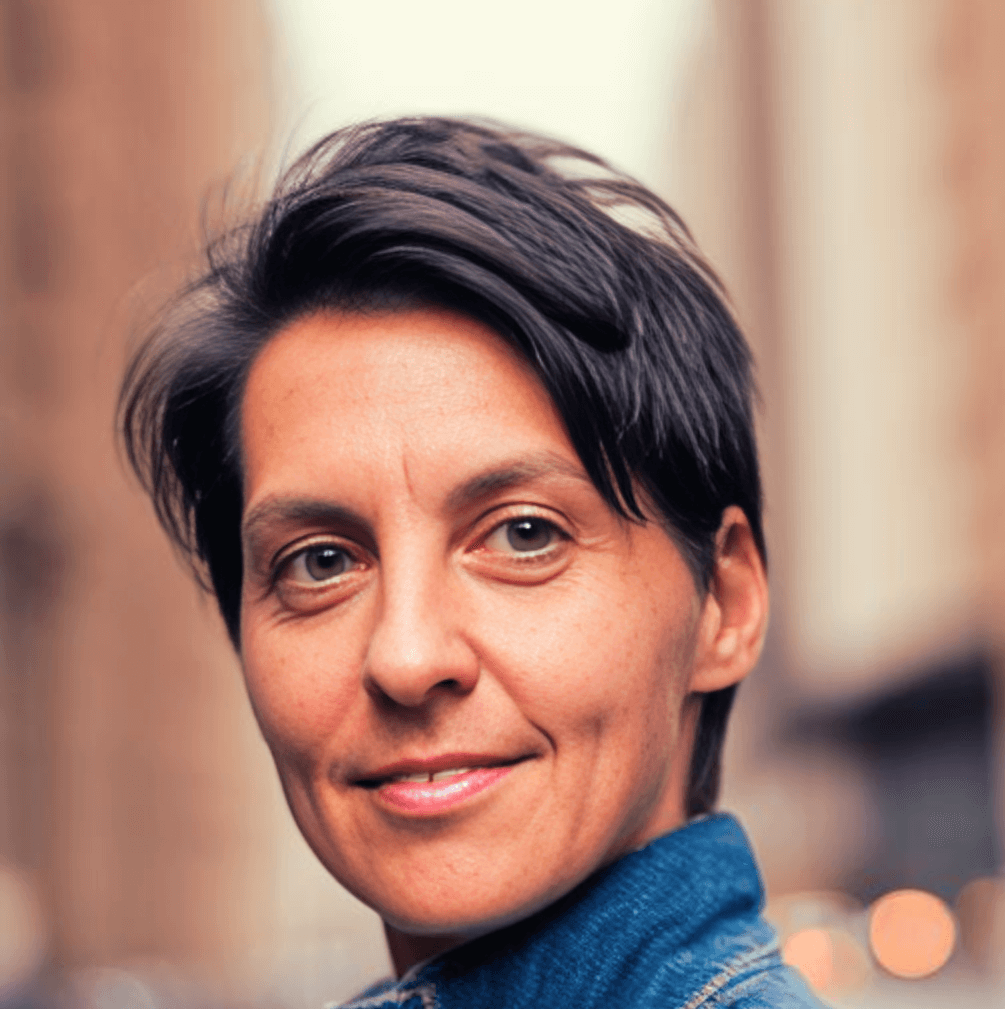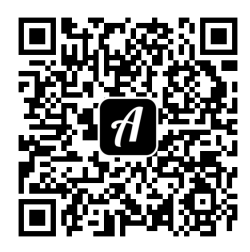Program 2023
Make a Difference - Teach and Learn with Technology - Thursday, November 16 2023
Find all recorded sessions here
![]() All sessions are in English
All sessions are in English
| 08:30 | Registration, coffee, parking permit | ||
|
09.00 |
Nanna Berg Auditoriet (9A.1.01) - Chair: Annette Q Pedersen Welcome to the conference |
||
| 09.15 | Keynote, Plenary session | ||
|
9.15-10.15 |
Nanna Berg Auditoriet (9A.1.01) - Chair: Annette Q Pedersen Sian Baynes keynote presentation and reference list. |
||
| 10.15-10.30 | Break | ||
| Parallel session 1 | |||
|
10.30-10.55 |
Nanna Berg Auditoriet (9A.1.01) - Chair: Lise Stenbæk Your friendly neighbourhood chatbot: Using ChatGPT in university teaching |
||
|
Room 4A.1.46 - Chair: Ulla Blomhøj Study: Virtual case-based clinical teaching |
|||
|
Room 4A.1.60 - Chair: Ole Ivar Vanman Use of a virtual environment to teach brewing technology |
|||
| Parallel session 2 | |||
|
11.05-11.45 |
Nanna Berg Auditoriet (9A.1.01) - Chair: Lise Stenbæk Workshop: Using ChatGPT in university teaching |
||
|
Room 4A.1.46 - Chair: Ulla Blomhøj ChatGPT as an innovative tool for generating MCQ questions for medical students |
|||
| 11.45-12.00 | Break & Networking | ||
| Parallel session 3 | |||
|
12.00-12.45 |
Nanna Berg Auditoriet (9A.1.01) - Chair: Helle Lottrup Halkjær Rhode Interactive Scavenger hunt: a simple yet versatile app that works as a digital teacher's aid A flipped learning exercise: Comparative Anatomy – from Experimental Animal to Human |
||
|
Room 16.0.72 (the video and podcast studio) - Chair: Helene Lindholm Alanne Introduction to Video/Podcast studio |
|||
|
Room 4A.1.60 - Chair: Kasper Bergstrøm Auto-generation of multiple question variations in e-learning What can Danish and German student learn from each other, a case study of German-Danish students and Danish-German students |
|||
| 12.45-13.30 | LUNCH | ||
| Parallel session 4 | |||
|
13.30-14.15
|
Nanna Berg Auditoriet (9A.1.01) - Chair: Ole Ivar Vanman Data science tools in the pharmacy bachelor programme A Digital Window to Reality as a Language Teacher |
||
|
Room 4A.1.46 - Chair: Helene Lindholm Alanne EdTech to support students´ language learning - A ressource bank Setting up a digital solution for large scale teaching in molecular/microbiological laboratories. |
|||
|
Room 4A.1.60 - Chair: Anita Monty Workshop: AI-powered literature search: managing the academic search process |
|||
| 14.15-14.45 | Break & Networking: In front of Nanna Berg Auditoriet (9A.1.01) | ||
| Keynote, Plenary session | |||
|
14.45-15.45 |
Nanna Berg Auditoriet (9A.1.01) - Chair: Annette Q Pedersen The Risks and Opportunities Presented by Adopting (and not adopting!) AI in HE in Denmark |
||
| 15.45-16.00 | Nanna Berg Auditoriet (9A.1.01) Closing remarks |
||
| 16.00 |
Reception |
||
Keynote - 09:15-10:15
Digital Education Utopia?
Nanna Berg Auditoriet, (9A.1.01)
Professor Siân Bayne, Director for the Centre for Research in Education at the University of Edinburgh.
This talk will consider the futures of digital education – and of universities themselves – in the context of rapid technological, social and climate change. What challenges will we face over the coming years? What versions of the future do we want to make possible? Using research from the Centre for Research in Digital Education at Edinburgh University, the talk will combine research, world-building, and the scholarship of utopia in a call for universities to keep open the space for imagining desirable futures.
Access the HIGHER EDUCATION FUTURES materials here https://www.de.ed.ac.uk/news/higher-education-futures-8-scenarios-8-tarot-cards-and-8-short-stories
References from the keynote.
 Siân Bayne is Professor of Digital Education and Co-Director of Education at the Edinburgh Futures Institute. She directs the Centre for Research in Digital Education. Her research is critical and interdisciplinary, currently focused on higher education utopia and theories of ‘enhancement’. She is one of the authors of The Manifesto for Teaching Online, gives regular keynotes on the future of digital education, publishes widely and has conducted research funded by UKRI, Erasmus+, AdvanceHE and NESTA. More information about her work is on her web site.
Siân Bayne is Professor of Digital Education and Co-Director of Education at the Edinburgh Futures Institute. She directs the Centre for Research in Digital Education. Her research is critical and interdisciplinary, currently focused on higher education utopia and theories of ‘enhancement’. She is one of the authors of The Manifesto for Teaching Online, gives regular keynotes on the future of digital education, publishes widely and has conducted research funded by UKRI, Erasmus+, AdvanceHE and NESTA. More information about her work is on her web site.
Keynote - 14:45-15:45
The Risks and Opportunities Presented by Adopting (and not adopting!) AI in HE in Denmark
Nanna Berg Auditoriet (9A.1.01)
 Dr. Philippa Hardman is an affiliate scholar at the University of Cambridge, a learning scientist and creator of DOMS™️ - a groundbreaking evidence-based learning design process. She is a thought leader in the world of learning design with a large and dedicated following on LinkedIn and Substack. Phil has spent 20+ years researching learning science & how to design the optimal in the flesh, online & hybrid learning experiences. She has designed some of the world's most high-impact learning experiences, including the University of Oxford's first and most successful MOOC. Phil also successfully led the largest learning design project in history while VP of Learning at ed-tech start-up, Aula. More recently, Phil has started to consider the role of AI in learning design and delivery and recently delivered a TEDX Talk on AI and Education and founded an AI-Ed startup.
Dr. Philippa Hardman is an affiliate scholar at the University of Cambridge, a learning scientist and creator of DOMS™️ - a groundbreaking evidence-based learning design process. She is a thought leader in the world of learning design with a large and dedicated following on LinkedIn and Substack. Phil has spent 20+ years researching learning science & how to design the optimal in the flesh, online & hybrid learning experiences. She has designed some of the world's most high-impact learning experiences, including the University of Oxford's first and most successful MOOC. Phil also successfully led the largest learning design project in history while VP of Learning at ed-tech start-up, Aula. More recently, Phil has started to consider the role of AI in learning design and delivery and recently delivered a TEDX Talk on AI and Education and founded an AI-Ed startup.
Parallel session 1 - Inspirational sessions 10:30-10:55
Your friendly neighborhood chatbot: Using ChatGPT in university teaching
Nanna Berg Auditoriet (9A.1.01)
Mark Friis Hau, FAOS - Employment Relations Research Centre, Faculty of Social Sciences (SAMF).
How can LLMs and ChatGPT foster innovative student engagements with theory and academic material? This presentation delves into strategies to leverage generative AI to enhance learning and student participation both inside and outside the classroom. Learn more about how ChatGPT can boost students' digital skills, make learning (more) fun - and perhaps even reduce lecturer preparation time in the process. The presentation features empirical examples that offer a roadmap for the practical integration of ChatGPT into university teaching.
Study: Virtual case-based clinical teaching
Room 4A.1.46
Mette Schjærff & Anne Marie Fog Sandal, Department of Veterinary Clinical Sciences, Faculty of Health and Medical Sciences (SUND)
The purpose of this study is to evaluate the effectiveness of virtual case-based clinical teaching for veterinary students in enhancing their clinical reasoning skills. Clinical reasoning is crucial for diagnosing and making decisions for patients, but many students struggle to apply theoretical knowledge to real-world clinical situations. Virtual case-based teaching simulates clinical cases, allowing students to actively engage and make decisions, bridging the gap between theory and practice. The study will involve 35 students using online cases, followed by oral presentations and feedback. The expected outcome is improved diagnostic reasoning and decision-making skills before students enter clinical rotations.
Use of a virtual environment to teach brewing technology
Room 4A.1.60
Kim Lou Johansen, Department of Food Science & Rasmus Fløe Mølbak, IT Learning Center, Faculty of Science (SCIENCE).
In this small workshop we will discuss the reason for creating the Virtual Brewery and which issues it solves. Each Participant will get access to the Brewery And will get a Group of Issues to solve with the use of the Breweryl
In the Brewery, students can move between the different departments and watch animations and videos of the relevant equipment and technologies That is used in industrial Breweries. We will give examples of other places one could use similar solutions.
Parallel session 2 - Inspirational sessions 11:05-11:45
Workshop: Using ChatGPT in university teaching
Nanna Berg Auditoriet (9A.1.01)
Mark Friis Hau, FAOS - Employment Relations Research Centre, Faculty of Social Sciences (SAMF).
This hands-on workshop is designed to equip teachers with the tools and strategies needed to integrate generative AI technologies like ChatGPT into their teaching practices. The session focuses on practical skills and exercises, offering actionable steps for immediate implementation and highlighting not only the potential for enhanced learning experiences but also the benefits for teachers in terms of preparation and resource optimization.
Contents:
- Explanation of the key features and functionalities of ChatGPT and similar LLMs for university teaching
- Hands-on activities to demonstrate how ChatGPT can facilitate interactive and dynamic class exercises
- Tips and tricks for leveraging LLMs to minimize preparation time
- Step-by-step guide for teachers to integrate LLMs/ChatGPT into their own didactic practices
Interactive discussion session TBA
Location 4A.1.46
ChatGPT as an innovative tool for generating MCQ questions for medical students
Room 4A.1.60
Martin Kongsbak-Wismann & Jan Pravsgaard, Dept. of Immunology and Microbiology, Faculty of Health and Medical Sciences (SUND).
Jan and Martin have adopted ChatGPT as an innovative tool for generating multiple choice questions in immunology for medical students (5th semester).
They will share their approach and illustrate the relative small effort it took to get a good draft to work with. Furthermore, while the AI offers to quickly generate a diverse range of rigorous questions, they have also identified areas where ChatGPT falls short.
Eager to provide insights, they emphasize the opportunities for other educators, but also to approach the technology with a discerning eye, ensuring that its outputs align with academic standards and course objectives.
Parallel Session 3 - Inspirational sessions 12:00-12:45
Interactive Scavenger hunt: a simple yet versatile app that works as a digital teacher's aid
Nanna Berg Auditoriet (9A.1.01)
Kira Tendal & Marian Ørgaard, Department of Plant and Environmental Sciences, Faculty of Science (SCIENCE).
ActionBound: a simple yet versatile app that works as a digital teacher's aide, to Create interactive, location-based scavenger hunts, we will talk about the idea behind the Actionbounds, student feedback and the future possibilities.
We will allow the participants to try out a small part of our brand new “På Jagt i haven” introduction to Landbohøjskolehaven for first year students. We will give perspectives to how other teachers can use similar solutions aswell
A flipped learning exercise: Comparative Anatomy – from Experimental Animal to Human
Nanna Berg Auditoriet (9A.1.01)
Anna Mathia Klawonn, Department of Drug Design and Pharmacology, Faculty of Health and Medical Sciences (SUND).
In the flipped learning exercise ‘Comparative Anatomy – from Experimental Animal to Human’, 3rd semester Pharmacy students are having their first introduction to anatomy.
Students have to watch a short movie on dissection of a rat, with comparison to human anatomy, and use the information from the movie for an ‘Organ-system treasure hunt’ at the human anatomy hall. The students have to upload examples and descriptions of the human organs and primary functions in Padlet.
Subsequently, each group is selected to present an organ to the class.
Setting up a digital solution for large scale teaching in molecular/microbiological laboratories.
Room 15A.1.11
Lukasz Krych, Department of Food Science, Faculty of Science (SCIENCE).
Why is it a problem teaching molecular biology and microbiology in large laboratories. ? We will present the issues and how we solved them with digital solution facilitating live streaming of details during laboratory exercises across multiple laboratories.
We have established a real-time displaying system consisting of TVs and broadcasting system to live-stream details from the lab bench during laboratory exercises.
We will go in depth with the setup and the first student reactions. Presenting a demo video from the first PhD course that used the digital setup and a student survey.
Auto-generation of multiple question variations in e-learning
Room 4A.1.60
Theresia Veronika Rampisela, Department of Computer Science, Faculty of Science (SCIENCE).
In creating self-learning or take-home exercises for students to practice applying calculation, computation, or logical procedures, we may need to prepare a set of similar questions with different numbers. This strategy offers variation in the questions and sparks discussions as students try to solve distinct questions. Yet, manually generating and grading multiple types of questions is tedious.
Through this talk, discover examples of auto-generated variations of questions using the e-learning platform Moodle and explore together how this tool may suit your course needs! The examples are primarily related to math and data science, but are generally applicable to STEM subjects.
The talk is based on educational activities at a non-Danish higher education institution.
What can Danish and German student learn from each other, a case study og german danish-students and danish german students
Room 4A.1.60
Lars Behnke & Rasmus Erik Voel Jensen, Department of English, Germanic and Romance Studies, Faculty of Humanities (HUM)
The purpose of this project is to develop a quiz app that presents unique statements from both German and Danish citizens on selected topics within everyday culture. This will help enhance intercultural understanding, translation skills, communication abilities, and media literacy in modern language education.
The project can also serve as an inspiration for meaningful foreign language instruction and knowledge dissemination. As part of my presentation, I will guide the participants through the quiz section of the app.
Parallel session 4 - Inspirational sessions 13:40-14:20
Data science tools in the pharmacy bachelor program
Nanna Berg Auditoriet, (9A.1.01)
Tommy Nørskov Johansen, Department of Drug Design and Pharmacology, Faculty of Health and Medical Sciences (SUND).
Data science tools such Python will be implemented as an add-on/replacement for more traditional ways of handling and working with data in the pharmacy program. Tommy presents and discusses the initiatives, including some of the course materials that have been specifically developed to support the transformation.
A Digital Window to Reality as a Language Teacher
Nanna Berg Auditoriet, (9A.1.01)
Marta Kirilova, Department of Nordic Studies and Linguistics, Faculty of Humanities (HUM).
Join our 20-minute workshop to explore the integration of educational technology into language education. Discover how video data collected at a language center, analyzed using tools like ELAN, NVivo, and PRAAT, can enhance learning. Explore the potential impact on student engagement and skill development. Learn how educators in other disciplines can draw inspiration from our experience in providing students insights into real-world practices. We'll showcase our data processing methods and facilitate discussions on adaptation. Don't miss this opportunity to explore educational technology's potential in language education and beyond, all within a concise, informative session.
EdTech to support students´ language learning - A resource bank
Room 4A.1.46
Annika Schimpff & Petra Daryai-Hansen, Department of English, Germanic and Romance Studies, Faculty of Humanities (HUM).
Is ChatGPT a suitable tool to practice and improve your foreign language skills? In an attempt to answer this question, we decided to include ChatGPT resources as part of a resource bank we created for French and German BA students at our department. We will briefly present initial feedback from our students and then try out the different ways that ChatGPT can be used for reading, writing, speaking and listening in our foreign languages. Please bring your laptop to the workshop. We are looking forward to share some exercises with you and to hear your feedback.
Workshop: AI-powered literature search: managing the academic search process
Room 4A.1.60
Lorna Wildgaard, Royal Danish Library (KB) & Jeannette Ekstrøm, DTU Library.
Participate in a workshop that teaches you to manage the academic literature, using different AI-tools-
The workshop will be hands on and use AU search assistants such as ResearchRabbit, Keenious and others.
You'll learn to find literature for complex problem statements, document the search method, consider bias & transparency.
We will approach unexpected perspectives to a research question, and methodological and ethical considerations regarding collecting literature
To take part in the workshop, participants are required to have a computer with access to internet. The tools do not require installation, however the participant can, if they choose, create a profile to gain access to more functionalities.
If you took part in this workshop at the NEFUS conference, this will be similar so we recommend you select another session.
Join the Treasure Hunt!

